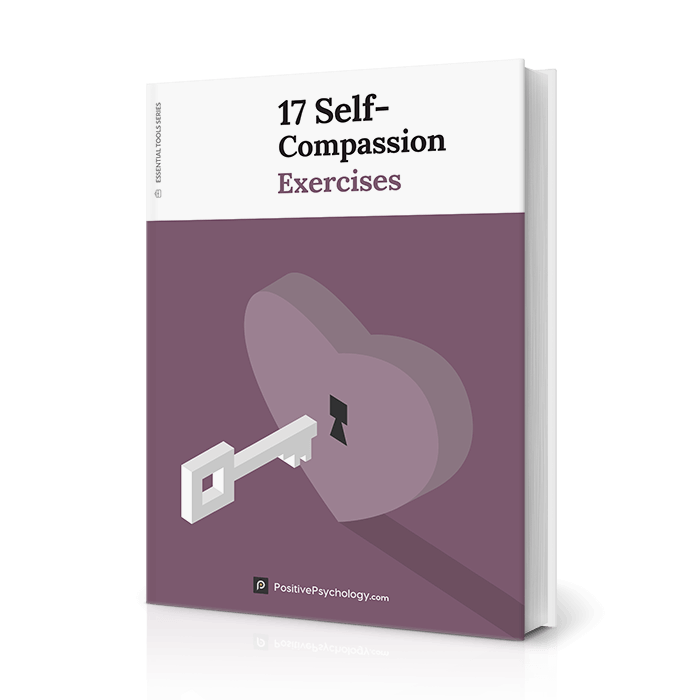How to Practice Self-Care: 10+ Worksheets and 12 Ideas
 Self-care continues to be a popular buzzword.
Self-care continues to be a popular buzzword.
But while it persistently grabs headlines, it also remains a fuzzy concept.
Though a relatively new phenomenon in the West, self-care has a much older tradition in Eastern cultures, reaching back to antiquity. Marked by a preventive rather than reactive approach to health, many Asian cultures seek to manage our energy economies before they become depleted.
The therapeutics of Traditional Chinese medicine, for example, revolve around preventing the exhaustion or blockage of “qi,” our vital life energy. Qigong, meditation, and yoga are all techniques designed to restore our inner balance and prevent us from burning out.
Combining self-soothing and relaxation with resilience-enhancing strategies, Western-style self-care, too, promotes a proactive approach to our physical and mental wellbeing (Skovholt & Trotter-Mathison, 2011).
Self-care is a sustainable and holistic investment in our minds and bodies. It includes taking good care of our physical health, most notably by eating healthily, exercising, and sleeping well. But it also entails looking after our minds and emotions, which can take the form of setting time aside for activities that nourish our spirits and learning to understand how we can best replenish our energies.
Before you continue, we thought you might like to download our three Self-Compassion Exercises for free. These detailed, science-based exercises will not only help you increase the compassion and kindness you show yourself, but will also give you the tools to help your clients, students, or employees show more compassion to themselves.
This Article Contains:
Why Is Self-Care So Important?
If we do not practice basic self-care, we may quite simply burn out. We will be unable to decompress or find outlets for our stressors. The worse we take care of ourselves, the less we will have to give. As the saying goes: ‘from an empty cup, we cannot pour.’
Often, self-care advice takes the form of prescribing specific relaxation activities to clients. But this misses the point. The true essence of self-care is twofold: it involves self-knowledge and positive self-talk.
First and foremost, we need to understand our true needs. What does and does not restore us differs substantially from person to person, depending on our tastes and preferences. Our key task is to stimulate our clients to reflect on what it is that they need – their own unique and special sets of self-care activities.
The second core part of self-care is about managing the way we talk to ourselves. Riegel and colleagues (2017) rightly highlights the importance of adjusting our self-talk as a crucial component of self-care. For there is nothing more energy draining and destructive than our inner critic, the bullying voice that tells us we are lacking.
To take better care of ourselves, we need to work on cultivating a kinder, more compassionate voice. Awareness raising and self-compassion (Neff, 2004), then, are the central features of self-care.
Our 5 Favorite Self-Care Worksheets
A solid starting point for embarking on a self-care journey is to take an inventory of how good we are at it already. This Self-Care Checkup breaks self-care down into physical, psychological, social, spiritual, and professional self-care. Checking how we score in each domain provides a good first indication for what we should prioritize.
An even better first calling point is PositivePsychology.com’s Self-Care Check-in, which invites us to see where more attention is needed to ensure we are addressing our self-care needs. It reminds us of the importance of taking active steps to maintain our mental wellness, and helps us identify where we should focus our attention to satisfy our unmet needs.
A few example self-care domains listed on this sheet are listed below:
- Quality time with family
- Time alone
- Friendships
- Opportunities to engage in pleasurable activities.
Given that self-compassion is such a vital part of any self-care regime worth its salt, another great stock-taking worksheet is PositivePsychology.com’s Letter of Self-Compassion. It reminds us that we are often too hard on ourselves and it is sometimes necessary to take a more forgiving, accepting, and caring attitude to ourselves and others.
An excellent resource for self-compassion-based self-care exercises is Kristin Neff’s website. Her How would you treat a friend? worksheet is particularly significant. It urges us to remember how we would interact with a struggling friend. What would we say to them? What tone of voice would we use?
Next, we are invited to think of how we speak to ourselves when we are struggling. Is there a difference between the way we talk to ourselves and the way we would speak to a friend we care about? If so, why? The aim is to treat ourselves with as much care and kindness as we would treat our friends.
In her Changing Your Critical Self-Talk exercise, Neff invites us to notice when we are talking to ourselves in a critical voice. Whenever we feel bad, we are asked mindfully to notice that voice – what it says, which phrases it uses, its tone, and whether, perhaps, it reminds us of someone in our past.
As a next step, Neff asks us to soften this inner judge and to reframe the observations it makes in a friendlier, more positive way. We may even want to supplement endearing and understanding self-talk with warm physical gestures.
3 Worksheets for Youths
 Adolescents and young adults benefit greatly by learning to use self-care as a coping strategy for life.
Adolescents and young adults benefit greatly by learning to use self-care as a coping strategy for life.
These three exercises are designed to help youths think about how they can incorporate more self-care activities into their daily lives, for increased mental and physical wellbeing.
Self-Care Vision Board
PositivePsychology.com’s Self-Care Vision Board is particularly well suited for younger clients. This tool is available for free as part of our three Self-Compassion Exercises Pack, which you can download here.
Designed to increase self-care and self-compassion in creative ways, it adopts a playful and intuitive approach to the topic.
Clients are invited to create a self-care vision board. It can be drawn or combine cut-out images, photographs, and words. Clients are asked to brainstorm as many positive self-care activities as possible – both activities in which they are already engaging and those they would like to develop.
They are asked to work intuitively rather than rationally, to discuss their representations with their therapists, and then to place the vision board in a prominent place where it reminds them of all the great things they could do to take better care of themselves.
My Self-Care Promise
Another fantastic exercise, for both the young and the old, involves making a simple self-contract.
Self-care is one of the first sets of activities that get neglected when suffering from symptoms of anxiety or depression, and planning pleasant activities can encourage us to reflect on our strengths.
My Self-Care Promise invites the reader to consider times they may be vulnerable to waning self-care. It includes space for a re-affirming mantra to remind them to treat themselves compassionately and invites some ‘if–then’ thinking for when obstacles arise.
Nurturing vs. Depleting Activities
The things we do each day can either enhance or take away from our wellbeing in the long run. While we all find ourselves doing things we ‘need’ to do (e.g., work, looking after others, or running errands), it can be particularly easy to neglect the things that give us life and energy.
The goal of this Nurturing vs. Depleting Activities worksheet is to help the reader become more aware of what adds to or takes away from their mood and energy.
To complete the exercise, the reader is invited to list their daily tasks from morning to evening.
Next, they decide whether each activity is nurturing (energizing, positive, and restorative) or depleting (draining their energy and happiness).
At the end of the exercise, they’re asked to reflect on the balance between the two and how they might introduce more nurturing moments into their lives.
The Self-Care Assessment Wheel
Self-care assessment wheels are excellent tools for several reasons.
- First and foremost, they powerfully visualize the different domains of self-care.
- Secondly, they show us, at a glance, a more holistic picture of how we are faring in caring for ourselves.
- Thirdly, they remind us that all of the domains of self-care are interconnected, and that as a person, we are defined by how we do in all the relevant areas.
Frequently, the areas covered in self-care assessment wheels include the physical, psychological, emotional, spiritual, personal, and professional spheres.
Assessment wheels are particularly useful for illustrating the importance of balance between these areas in our lives. The best and most widely used self-care assessment wheel is Olga Phoenix’s Self-Care Wheel. It consists of two sheets, one in which general relevant topics have been inserted into the wheel, as inspiration and prompts, and one empty wheel for the client to fill out.
If we want to be less directive and allow our clients to use this wheel more intuitively, we can simply present them with the empty wheel only.
Self-Care Activity Ideas
The list of commonly recommended self-care rituals tends to be topped by nutritional and sleep hygiene advice, and also features walks in nature, taking up hobbies, scheduling “me-time,” various relaxation techniques, and making more time for friends.
It also frequently includes sensual rituals such as bathing, pampering ourselves with luxurious beauty products, and lighting scented candles.
But prescribing specific activities to our clients misses the point. For self-care is all about finding out what we need – what our unique energy-draining and energy-boosting strategies are. They will differ in each case, often substantially. What reenergizes an extrovert, for example, may well drain an introvert even further.
The clue, then, is to draw up our unique list of our favorite things. We may take inspiration from the famous Sound of Music song:
Raindrops on roses and whiskers on kittens
Bright copper kettles and warm woolen mittens
Brown paper packages tied up with strings
These are a few of my favorite things
Cream colored ponies and crisp apple strudels
Doorbells and sleigh bells and schnitzel with noodles
Wild geese that fly with the moon on their wings
These are a few of my favorite things
To paraphrase Julie Andrews, when life stings, and we are feeling sad, we can simply remember our favorite things, and then we won’t feel so bad.
My personal list of favorite self-care things includes the following 12 items:
- Practicing balanced breathing for 10 minutes. All you need to do is sit comfortably, with an upright spine, and breathe in on your count of six, and then breathe out on your count of six. It is one of the most simple and powerful exercises I know for changing one’s state.
- Drinking in the colors of all the beautiful flowers and trees when walking in nature.
- Standing with my feet in the shore, where the waves break and foam, looking out to sea and filling my lungs deeply with salty air.
- Remembering all the things I am grateful for.
- Watching my two cats practice self-care; they are the true masters of the art. All day long, they sleep, clean, and groom themselves. They play, seek the sun, stretch, purr, and demand cuddles whenever they feel like it.
- Going for a run along the river listening out for birdsong.
- Playing Pachelbel’s Canon in D major on the piano.
- Singing along at the top of my voice to songs I used to love as a teenager (I won’t tell which ones 😉 ).
- Watching films that make me cry.
- Having coffee with a friend.
- Cuddling my daughter.
- Applying my favorite body lotion all over my skin. Its orange-infused cedar-almond scent reminds me of a holiday in Tuscany when we were all serenely happy. There is nothing as significant as smell for activating memories and associated positive emotional states.
As my list hopefully shows, our self-care lists will be highly specific and will not work for others. Our aim always has to be to stimulate our clients to draw up their own unique lists.
Emotional Intelligence Tools
 Enhancing our emotional intelligence is another key facet of self-care.
Enhancing our emotional intelligence is another key facet of self-care.
To understand what drains and what replenishes us, we also need to have a basic understanding of our dominant emotional patterns.
In Emotional Intelligence: Why It Can Matter More Than IQ, the American psychologist Daniel Goleman (1995) defines the core components of emotional intelligence as self-control, persistence, and the ability to motivate ourselves; combined with the ability to empathize and read emotions in others; and, crucially, an understanding of our core emotional processes.
Insights into our emotional habits yield greater self-mastery.
The keystone of emotional intelligence – and a crucial prerequisite both to self-understanding and the ability to care well for ourselves – is knowing our emotions. It is a form of meta-self-awareness that is manifest in “recognizing a feeling as it happens.”
For the “inability to notice our true feelings leaves us at their mercy,” Goleman writes (1995, p. 43). Those of us who know our feelings are generally better pilots of our lives. There is a crucial difference between simply being caught up in a feeling and developing a metacognitive awareness that we are being submerged by this feeling.
Objective self-observation is, therefore, the key to knowing our emotional selves. Such self-observation entails stepping back from our experience and cultivating an awareness of our conscious thought that hovers above rather than becoming entangled in it.
Two great emotional intelligence tools for enhancing emotional self-knowledge are Emotional Awareness and Emotional Expression. The first exercise allows you to log your emotions throughout the day to improve awareness and become more attuned with your triggers and emotional responses.
The Emotional Expression exercise helps clients to walk through their emotional responses to imagined experiences. It gives clients a helpful and practical way to practice expressing their feelings to others, which is a helpful strategy for coping with stress.
If you’re looking for more science-based ways to help others develop self-compassion, this collection contains 17 validated self-compassion tools for practitioners. Use them to help others create a kinder and more nurturing relationship with the self.
A Take-Home Message
The art of taking good care of ourselves includes some basics; eating and sleeping well, getting regular exercise, and paying attention to our breath are among them, and ensuring that our self-talk is kind is also key.
Other than that, we should refrain from prescribing specific activities to our clients. Self-care means very different things to different people. As the ancients in Asia knew well, self-care is essentially about managing our energy wisely.
Truly understanding what drains us and what restores us is crucial in this process. Our task as psychologists and coaches is to create awareness in our clients about what works for them.
Self-knowledge, including emotional intelligence, is thus a crucial precondition for self-care. It may be that yoga or knitting will help us to refuel, but it can just as well be kickboxing or kitesurfing.
Introverts will cherish alone-time activities, while extroverts may reenergize by being with others. So let us not recommend that people light scented candles or take bubble baths, but rather encourage them instead to understand their unique needs and how to meet them – whatever these may be.
We hope you found this article useful. Don’t forget to download our three Self-Compassion Exercises for free.
- Goleman, D. P. (1995). Emotional intelligence: Why it can matter more than IQ for character, health & lifelong achievement. New York, NY: Bantam.
- Kashdan, T. B., Barrett, L.F., & McKnight, P. E. (2015). Unpacking emotion differentiation: Transforming unpleasant experience by perceiving distinctions in negativity. Current Directions in Psychological Science, 24(1), 10-16.
- Neff, K. (2004). Self-compassion and psychological well-being. Constructivism in the human sciences, 9(2), 27-37.
- Riegel, B., Dickson, V. V., Garcia, L. E., Creber, R. M., & Streur, M. (2017). Mechanisms of change in self-care in adults with heart failure receiving a tailored, motivational interviewing intervention. Patient Education and Counseling, 100(2), 283-288.
- Schwartz, T. & McCarthy, C. (2007, October). Manage your energy, not your time. Harvard Business Review. Retrieved from https://hbr.org/2007/10/manage-your-energy-not-your-time
- Skovholt, T. M., & Trotter-Mathison, M. (2011). Counseling and psychotherapy: Investigating practice from scientific, historical, and cultural perspectives. The resilient practitioner: Burnout prevention and self-care strategies for counselors, therapists, teachers, and health professionals (2nd ed.). New York, NY: Routledge.
Let us know your thoughts
Read other articles by their category
- Body & Brain (49)
- Coaching & Application (57)
- Compassion (26)
- Counseling (51)
- Emotional Intelligence (24)
- Gratitude (18)
- Grief & Bereavement (21)
- Happiness & SWB (40)
- Meaning & Values (26)
- Meditation (20)
- Mindfulness (45)
- Motivation & Goals (45)
- Optimism & Mindset (34)
- Positive CBT (28)
- Positive Communication (20)
- Positive Education (47)
- Positive Emotions (32)
- Positive Leadership (18)
- Positive Parenting (4)
- Positive Psychology (33)
- Positive Workplace (37)
- Productivity (17)
- Relationships (46)
- Resilience & Coping (36)
- Self Awareness (21)
- Self Esteem (38)
- Strengths & Virtues (32)
- Stress & Burnout Prevention (34)
- Theory & Books (46)
- Therapy Exercises (37)
- Types of Therapy (64)







What our readers think
Thank you very much ,itcame at the right time as we had a training yesterday emphasising on what are we doing daily to derailt ourselves.This activities will be valuable daily for one to use inoder to look forward to the next day
Good article. Thanks
Appreciate the worksheets.
Thank you for the worksheets!
Really great knowledge I have gained. I learned so much about self compassion.
Hi Meenu,
So glad you found these resources helpful. Thanks for being a reader!
– Nicole | Community Manager
Greetings Dr. Schaffner!
Wonderful article! Thank you so much for sharing all the amazing self-care resources available for us to use, especially during these times. Thank you for sharing the Self Care Assessment Wheel as well and your kind words! I greatly appreciate it. I wanted to reach out and request Self-Care Wheel to be linked to my Self-Care Wheel website page: http://www.olgaphoenix.com/key-offerings/self-care-wheel/. It contains additional information, Self-Care Wheels translated in other languages, downloadable resources, etc. The current link mentioned in this article is to 3rd non-affiliated party website. Thank you so very much for all your work! In deep gratitude, Olga Phoenix
Hi Olga,
Thanks for reaching out to us. Yes, it certainly makes sense to link your original source. I’ll notify our editing team and get this link amended 🙂
– Nicole | Community Manager
Hi Nicole!
Thank you so very much! Your time and work is greatly appreciated! Olga Phoenix
I really liked the way the video was put together…I understand the importance of a self-care
Hi Yvette,
So glad you enjoyed the resources here. We offer a tool on the topic of self-compassion (which is an important part of self-care) which may be of interest to you. This tool is available for free download here.
– Nicole | Community Manager